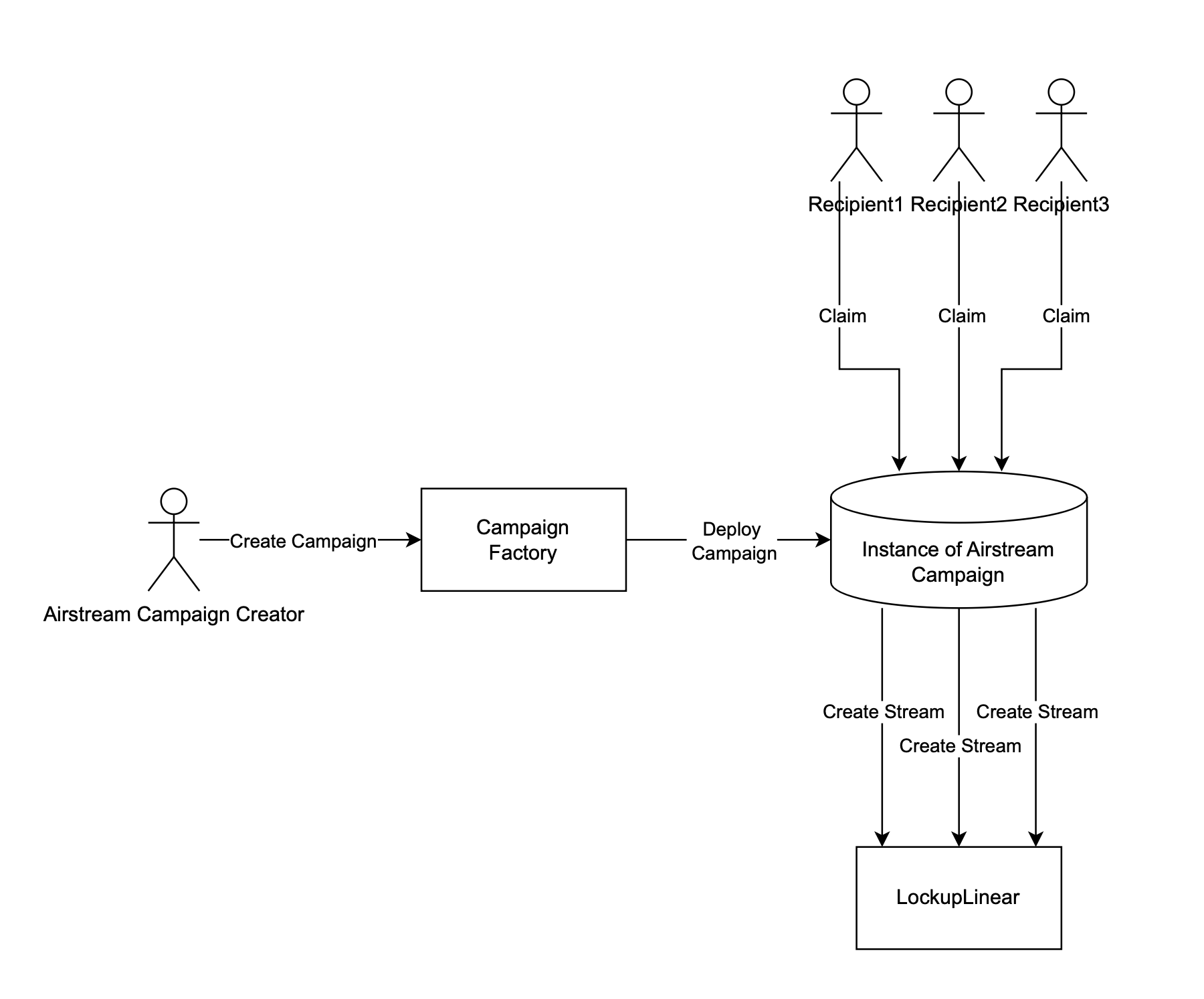Airstreams
You can refer to the airdrop section of our use-cases page to learn more about the benefits of streamed airdrops.
Why Airstreams?
The gist of Airstreams is that instead of airdropping the entirety of the tokens all at once, airdrop recipients receive a fraction of the tokens every second through a token stream.
The beauty of it is that airdrop recipients are forced to think long-term and keep the project's future as their first and foremost priority. They are forced to, because instead of receiving all the tokens at once, they receive them over time in our user-friendly Airstreams interface.
An airstream can have a claim window of a few days, months, or even years. Alternatively, they can have no expiration. You could, for example, configure the airdrop of your new token to vest over years, but the recipients get the streamed tokens only if a claim is made within that period of time.
Airstreams not only create the right incentives for token holders, but also prevent them from dumping their tokens on day one, as has been the case for many airdrops in the past.
With Airstreams, airdrop recipients receive a fraction of the tokens every second only after they claim the stream. Subsequently, they have to submit withdrawal transactions from the stream.
White Label Solution
Sablier Labs does not currently offer any white label solutions for Airstreams. This means that you cannot have your logo displayed in the claim page seen by the airstream recipients.
However, we are actively exploring implementing this feature. Fill out this form and we will respond as soon as possible.
How it Works
Thanks to our battle-tested token distribution protocol, you can create Airstreams for thousands of recipients in a few clicks using our interface. Recipients and their airdropped allocations can be set by uploading a simple CSV spreadsheet in the user interface.
The spreadsheet feature is the perfect fit for airstreams: it allows you to upload a CSV file with tens of thousands of recipients and the interface will automatically create a new airstream for each of these recipients. You can download a tempalte of the CSV file here.
Another great advantage is that creating an Airstream campaign with thousands of recipients won't ruin you in terms of gas fees. When launching a campaign, a contract is deployed, and Airstreams are only created when they are claimed by each Airstream recipient. This is made possible by a data structure called Merkle Tree, which efficiently summarizes and verifies the integrity of large sets of data.
The contracts that implements Airstream Campaigns are called MerkleLL and MerkleLT. For those interested in the
technical part, click here to learn about Merkle Lockup
Linear.
When you create an Airstream campaign, all you are doing is deploying a contract that allows for the recipients you put in to prove that they are eligible, and create a stream if they are. That's all it is.
Additionally, you don't have to immediately fund the Airstream contract. You can just create the contract and at a later date fund it with the airdropped tokens.
This has three great implications:
-
Recipients pay for the gas fees themselves to create the stream, when they claim (the claim action creates the stream). Creating a campaign with thousands of recipients would be incredibly costly if you had to pay for all the gas fees.
-
You keep full control over unclaimed Airstreams. If a recipient doesn't claim their Airstream, it's not created, and you remain in full control over their allocation.
- This applies only if the campaign has an expiration date. If there is no expiration date, you can only clawback during the grace period, and the recipients can claim their Airstreams at any time in the future.
-
You can retrieve your funds in case of misconfiguration. There is a grace period during which you can retrieve unclaimed funds. The grace period ends 7 days after the first claim is made. This is useful in case where you have incorrectly configured the Airstream campaign or deposited more tokens than required.
Once the Airstream campaign is launched, recipients can claim their airstream and withdraw the underlying tokens that have already been streamed at any time using the Sablier Interface at app.sablier.com.
Types of Airstreams
Sablier supports two types of Airstream campaigns:
-
MerkleLL: This uses Lockup Linear streams to create Airstream campaign. If you want your airdrop distribution to be linear, this is the one you should be using.
-
MerkleLT: Similar to traditional vesting, this enables Airstream campaigns that release tokens in regular intervals. This is achieved using the Lockup Tranched contract. You can set your release schedule to be weekly, monthly, or quarterly.
Diagram
Here's a diagram showing how an Airstream campaign works with Lockup Linear streams.
